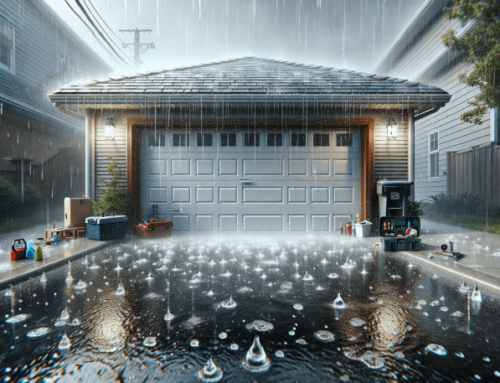When it comes to home energy efficiency, many homeowners overlook one crucial element: the garage door. You might be surprised to learn just how much your garage door can affect your energy bills. In this blog post, we’ll explore the various ways garage doors impact energy costs, and how you can make informed decisions to enhance your home’s efficiency. So, grab a cup of coffee, and let’s dive into the world of garage doors!
Understanding Garage Doors and Energy Efficiency
First things first, let’s talk about what makes a garage door energy efficient. The primary factor is insulation. An insulated garage door can significantly reduce heat transfer between your garage and the outside environment. This means that during those hot South Florida summers, your garage won’t become an oven, and in the winter months, it won’t turn into a freezer. But how do you know if your garage door is up to par?
Many older garage doors are made from single-layer materials, which offer little to no insulation. If your garage door is older than ten years, it might be time to consider a replacement. Modern garage doors come with insulation options that can keep your garage and home more comfortable. Look for doors with an R-value, which measures thermal resistance. The higher the R-value, the better the insulation.
Additionally, the type of garage door you choose can also impact energy efficiency. For instance, sectional doors tend to be more energy-efficient than traditional swing-out doors. They seal better and are less prone to air leaks. If you’re considering a new installation, think about investing in a door that offers both style and energy efficiency.
How Garage Doors Affect Heating and Cooling Costs
Have you ever noticed how your garage feels like a sauna in the summer? That’s because heat can easily seep in through poorly insulated garage doors. This heat can then transfer into your home, forcing your air conditioning system to work overtime. As a result, your energy bills can skyrocket. The same principle applies in winter; a cold garage can chill your home, leading to increased heating costs.
To illustrate this, imagine your garage as a giant sponge. If it’s soaked with heat or cold, it will inevitably transfer that temperature to your living space. By investing in a well-insulated garage door, you can effectively “wring out” that sponge, keeping your home’s temperature stable and comfortable.
Moreover, if you have a room above your garage, the impact of an uninsulated garage door becomes even more pronounced. The temperature fluctuations can make that room uncomfortable, leading to increased reliance on heating and cooling systems. This not only affects your comfort but also your wallet.
So, what can you do? If you’re in need of garage door installation or repair, consider options that prioritize insulation. Look for doors with a solid core and weather stripping to minimize air leaks. And don’t forget about regular maintenance; a well-maintained door seals better and performs more efficiently.
Choosing the Right Garage Door for Energy Savings
When it comes to selecting a garage door that will help save on energy costs, you have several options. First, consider the material. Steel doors with a polyurethane core offer excellent insulation and durability. Wood doors can also be energy-efficient, but they require more maintenance to prevent warping and damage.
Next, think about the style of the door. As mentioned earlier, sectional doors are generally more energy-efficient than swing-out doors. They fit snugly against the frame, reducing the chances of air leaks. If you’re in the Pembroke Pines area, you might want to check out Garage Door Pros for professional advice on the best options for your home.
Another factor to consider is the installation of keyless entry systems and electric garage door openers. These modern conveniences not only add security but can also help you manage your garage’s temperature more effectively. For instance, if you can open your garage door remotely, you can avoid letting in hot or cold air unnecessarily.
Finally, don’t forget about aesthetics. A beautiful garage door can enhance your home’s curb appeal while also providing energy savings. Look for designs that complement your home’s architecture and consider colors that reflect sunlight to keep your garage cooler.
Regular Maintenance for Energy Efficiency
Just like any other part of your home, your garage door requires regular maintenance to function optimally. Neglecting this can lead to inefficiencies that impact your energy costs. So, what should you do to keep your garage door in tip-top shape?
Start with a visual inspection. Look for any signs of wear and tear, such as cracks, dents, or rust. These can create gaps that allow air to escape, making your garage less energy-efficient. If you notice any issues, it’s best to contact a professional for garage door repair.
Next, check the weather stripping around the door. This is a crucial component that helps seal the door against air leaks. If it’s worn out or damaged, replace it to ensure a tight seal. You can find affordable weather stripping at most home improvement stores.
Additionally, lubricate the moving parts of your garage door regularly. This includes the hinges, rollers, and tracks. A well-lubricated door operates smoothly, reducing wear and tear and improving energy efficiency. If you’re unsure how to do this, consider hiring a certified professional staff from Garage Door Pros to handle the maintenance for you.
Finally, consider scheduling a professional inspection at least once a year. This can help identify any potential issues before they become costly repairs. Plus, many companies, including Garage Door Pros, offer affordable garage door services that can help keep your door running efficiently.
Customer Testimonials: Real Experiences with Energy Savings
Don’t just take our word for it; let’s hear from some satisfied customers who have experienced the energy-saving benefits of upgrading their garage doors. Many homeowners have reported significant reductions in their energy bills after investing in insulated garage doors.
For instance, one Pembroke Pines resident shared, “After replacing my old garage door with a new insulated model, I noticed a drop in my energy costs almost immediately. It’s like my garage is a whole new space!” This sentiment is echoed by many who have made the switch.
Another customer from Weston mentioned, “I never realized how much my garage door was affecting my home’s temperature. Now, my garage stays cooler in the summer, and my air conditioning doesn’t have to work as hard.” These testimonials highlight the real-world impact of energy-efficient garage doors.
When considering a garage door upgrade, it’s essential to do your research. Look for companies with positive customer testimonials and a proven track record in garage door installation and repair. This will ensure you receive professional garage door solutions that meet your needs.
Conclusion
In conclusion, your garage door plays a significant role in your home’s energy efficiency. By understanding how it affects heating and cooling costs, choosing the right door, and maintaining it properly, you can make a substantial impact on your energy bills. Whether you’re in Pembroke Pines, Miramar, Weston, or beyond, investing in a quality garage door is a smart move for both your wallet and your comfort. So, don’t wait any longer—take action today and reap the benefits of an energy-efficient garage door!
FAQs
What is the best type of garage door for energy efficiency?
The best type of garage door for energy efficiency is typically an insulated steel door with a high R-value. These doors minimize heat transfer and help maintain a stable temperature in your garage.
How often should I maintain my garage door?
You should perform a visual inspection of your garage door at least once a month and schedule professional maintenance at least once a year to ensure optimal performance.
Can I install a garage door myself?
While it’s possible to install a garage door yourself, it’s recommended to hire professionals for safety and to ensure proper installation. Companies like Garage Door Pros offer expert installation services.
What are keyless entry systems, and are they worth it?
Keyless entry systems allow you to open your garage door without a physical key or remote. They enhance convenience and security, making them a worthwhile investment for many homeowners.
How can I tell if my garage door is energy-efficient?
Check the R-value of your garage door, look for insulation, and inspect for air leaks. If your door is older or made from single-layer materials, it may not be energy-efficient.






